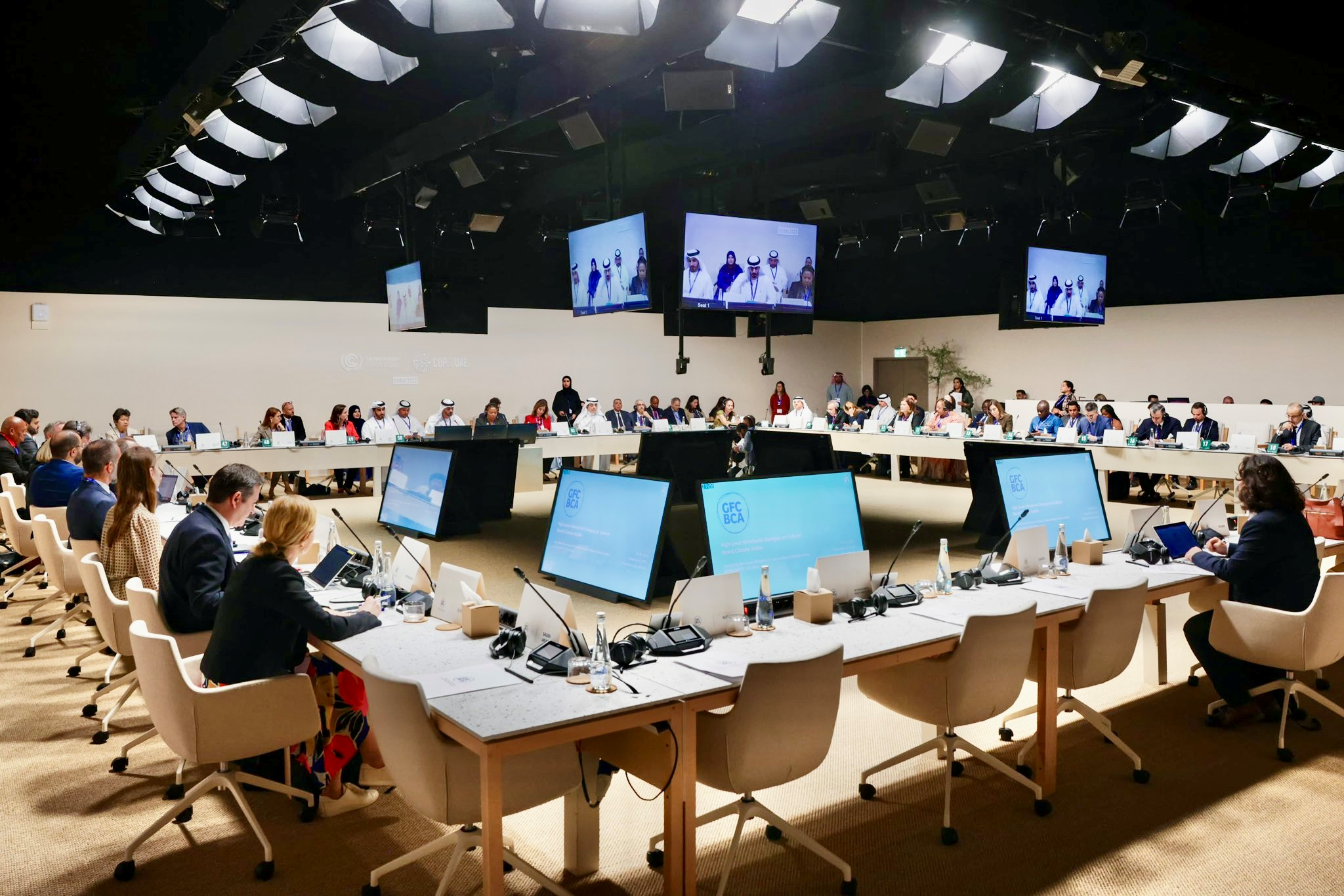
Joint Work Decision
Explained
We are asking for a ground-breaking decision by the COP requesting a ‘Joint Work on Culture and Climate Action’. A ‘Joint Work’ is a consultation and information gathering process undertaken by the UN Climate agency’s scientific, technical and implementation bodies. This would begin the process to advance discussions on the role of culture in the work of the UN’s Climate Change agency known as the United Nations Framework Convention on Climate Change (UNFCCC).
Ultimately, the Joint Work process can help ensure that culture’s potential is recognised and understood, allowing it to contribute to the climate solutions we so urgently need.
Joint Work on Culture and Climate Action
A Joint Work Decision by the COP would launch a process by the UNFCCC Subsidiary Body on Implementation and the Subsidiary Body on Scientific and Technological Advice to:
Understand how culture - heritage, arts and creative sectors - is already supporting climate actions and solutions
Support cultural voices to influence audiences and consumers
Unite the entire culture sector globally to scale up action on the most pressing issue of our time
Influence key policies and discussions on adapting to our changing climate, decarbonising, supporting cultural knowledge keepers, safeguarding heritage and culture, and innovating with our creativity
Why Seek a Joint Work Decision?
Further Information
-
Triggering a Joint Work Decision (JWD) would launch a one year UNFCCC consultation on culture and climate action. The consultation would lay the foundation for building the missing cultural pillar of climate change response through the adoption of the first-ever UNFCCC Work Plan on Culture. Following customary UNFCCC processes, the consideration of the JWD at a COP would be preceded by workshops held by the UNFCCC subsidiary bodies.
-
The Global Call Campaign seeks the adoption of a Joint Work on Culture and Climate Action Decision (JWD) at the 2025 UN Climate Change Conference, COP30, being held in Belem, Brazil. That consultation could lead to the adoption at COP31 of the first-ever UNFCCC Work Plan on Culture, at last firmly anchoring attention to the socio-cultural dimensions of the climate crisis in the work of the UNFCCC.
To secure this goal, the Global Call Campaign has adopted a strategy referred to as the Dubai to Baku to Belém Action Plan for Culture at the UNFCCC.
The timeline to a JWD provided for the Action Plan is as follows:
● COP28, Dubai: High Level Ministerial Dialogue on Culture-based Climate Action and launch of the Group of Friends of Culture-based Climate Action.
● COP 29, Baku: Group of Friends adopts Terms of Reference to establish that one of its objectives is the launch of the first Work Program on Culture-Based Climate Action at the UNFCCC; inclusion in the final decisions taken at COP29 of a request that the UNFCCC hold one or more workshops in 2025 to consider issues related to culture and heritage while also working in real time to leverage culture-based climate action to achieve more ambitious Nationally Determined Contributions (NDCs) due by COP30.
● COP 30: Belem: Secure adoption of a JWD launching a one-year consultation on culture and climate by the UNFCCC Subsidiary Bodies over the following year (2026). Submission by nations of new NDCs bolstered by culture-based climate action strategies. Hold Culture Ministerial/GFCBCA meeting.
● COP 31: (Location TBA): Recommendations from the JWD consultation would lead to the adoption at COP31 of the first-ever UNFCCC Work Plan on Culture.
In order to see a JWD adopted at COP30, it is critical to secure inclusion in one of the final decisions taken at COP29 of a request that the UNFCCC subsidiary bodies hold one or more workshops in 2025 to consider issues related to culture and heritage with the aim of exchanging views. These culture workshops could result in a recommendation that COP30 adopt a Joint Work on Culture and Climate Action Decision. Critically, the timing of these workshops will also allow for the dissemination of information and ideas on culture-based strategies in time to enhance ambition in new national climate commitments (NDCs) due in 2025, thus helping to fill the GST Culture Gap.
-
Adopting this JWD will play a crucial role in the implementation of change in societies by recognising that culture, heritage and arts are integral to human life, expression, beliefs and behaviour and therefore integral to embracing the changes needed to create a better future.
To date, engagement with the cultural dimensions of climate action has been led in many places by civil society and other non-state actors. The JWD would not change that. Rather, the idea is that mainstreaming art, culture, and heritage perspectives into international climate change policy would support local cultural-based climate action by helping to deliver policy and funding frameworks that valorise this work. All of this would in turn help improve the efficacy of climate planning and action.
-
In November 2022, COP 27 delivered exciting news and a historical win for the creative climate movement. For the first time ever, national governments included cultural heritage in statements on both ‘loss and damage’ and ‘adaptation’.
The Climate Heritage Network (CHN) and partners delivered a significant achievement, ensuring that culture is recognised as an asset to be protected from climate impacts and a resource to strengthen communities’ transformative change.
-
Read about the outcomes of COP28 here.
This year’s COP29 takes place in Baku - find out more about what is happening for culture and the Call to Action.
Thanks to the support of ALIPH


